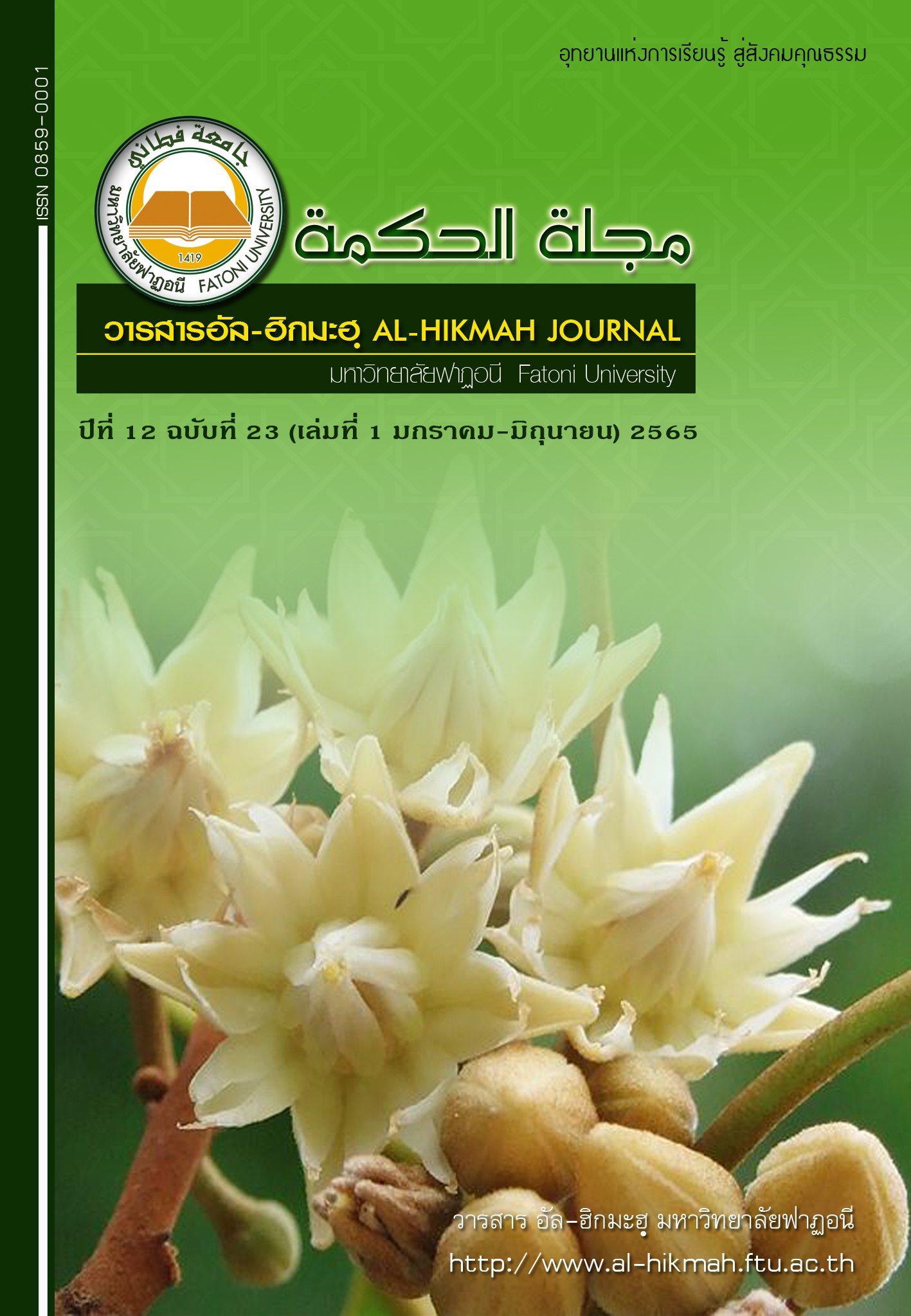การวิเคราะห์ระบบข้อมูลเพื่อหาแนวทางการป้องกันการพ้นสภาพของนักศึกษามหาวิทยาลัยฟาฏอนี
การวิเคราะห์ระบบข้อมูลเพื่อหาแนวทางการป้องกันการพ้นสภาพของนักศึกษามหาวิทยาลัยฟาฏอนี
Abstract
This mixed method study aimed to analyze information system of dismissal of Fatoni University (FTU) students and to examine preventive guidelines on dismissal of FTU students. The populations of this study are students who were dismissed from 2017 to 2021 using Google Studio to analyses and display the results in form of Data Visualization. Qualitative data were collected from 63 samples including current students, department’s staff, lecturers and advisors, head of departments, deans, and directors using interview and group discussion.
The results showed that the student dismissal consisted of 4 types: (1) low academic performance, (2) do not do course enrollment and request for leave of absence. (3) end of study period, and (4) resignation. The causes of the dismissal were categorized into four aspects: (1) students background, which is gender and admission grade (2) teaching and learning which are mostly first year students to be dismissed, (3) advisors, which is lack of concrete guiding and supervision system and utilizing e-register system to monitor the student performance, and (4) parent marital status and household economy which found that the students with household income lower than THB150,000 per year, students who did not take a student loan, students who study over study period and ceased the student loan, and international students who did not have money to pay tuition fee are likely resulted in their dismissal
The protective guidelines suggested are learning and teaching approach in form of active learning should be integrated with Islam and courses. Coaching is also a method to monitor student performance and give supervision for their completion with study timeframe and help prevent student dismissal.
Keywords : Dismissal, Information System, Fatoni University
Downloads
Published
How to Cite
Issue
Section
License
Copyright (c) 2022 Al-HIKMAH Journal

This work is licensed under a Creative Commons Attribution-NonCommercial-NoDerivatives 4.0 International License.



